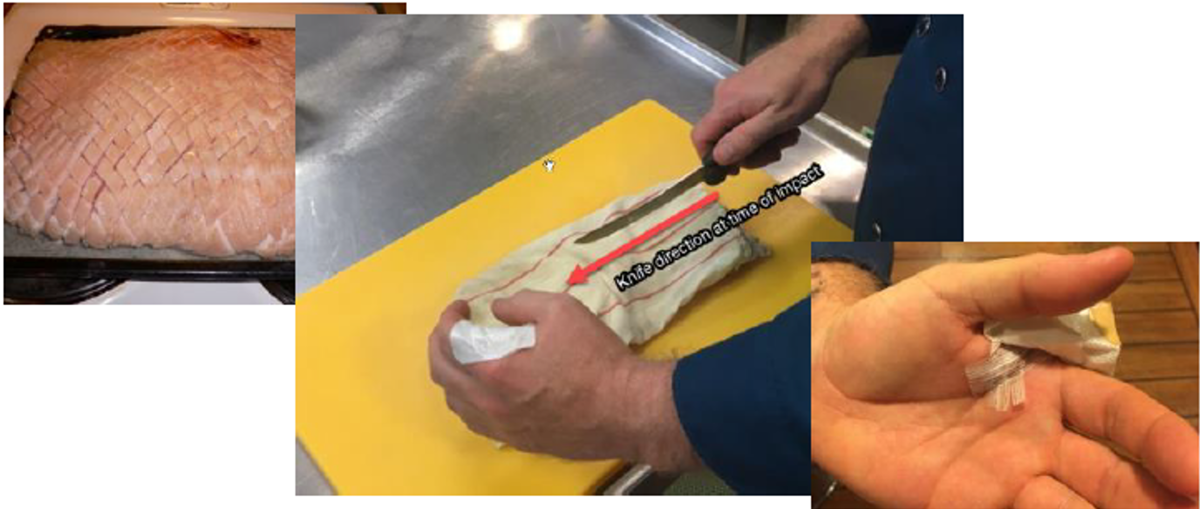LTI: Hand injury in galley
- Safety Flash
- Published on 4 April 2023
- Generated on 6 March 2026
- IMCA SF 09/23
- 1 minute read
Jump to:
An experienced cook in the galley badly injured his hand when his knife slipped.
What happened?
The incident occurred in a vessel alongside at Christmas. The cook was preparing meat when his knife slipped and jabbed the top left part of the palm of his left hand, causing a serious laceration.
As a consequence the cook needed surgery to repair three damaged nerves.

What went wrong?
- The cook used no PPE – butcher’s gloves.
- The meat was not at the ideal temperature for cutting with minimum force.
- Cutting was done by both pushing and pulling of the blade.
- The risk of the knife slipping was neither assessed nor mitigated.
Lessons learned
- Cut away from the hands or the body.
- Use appropriate PPE in the galley.
- Did the injured person feel pressure to carry on ? A person working alone also has “Stop work authority“.
- Experience is not necessarily a fail-proof barrier or mitigation against risk.
Related Safety Flashes
-
IMCA SF 11/14
8 July 2014
-
IMCA SF 05/13
4 April 2013
IMCA Safety Flashes summarise key safety matters and incidents, allowing lessons to be more easily learnt for the benefit of the entire offshore industry.
The effectiveness of the IMCA Safety Flash system depends on the industry sharing information and so avoiding repeat incidents. Incidents are classified according to IOGP's Life Saving Rules.
All information is anonymised or sanitised, as appropriate, and warnings for graphic content included where possible.
IMCA makes every effort to ensure both the accuracy and reliability of the information shared, but is not be liable for any guidance and/or recommendation and/or statement herein contained.
The information contained in this document does not fulfil or replace any individual's or Member's legal, regulatory or other duties or obligations in respect of their operations. Individuals and Members remain solely responsible for the safe, lawful and proper conduct of their operations.
Share your safety incidents with IMCA online. Sign-up to receive Safety Flashes straight to your email.